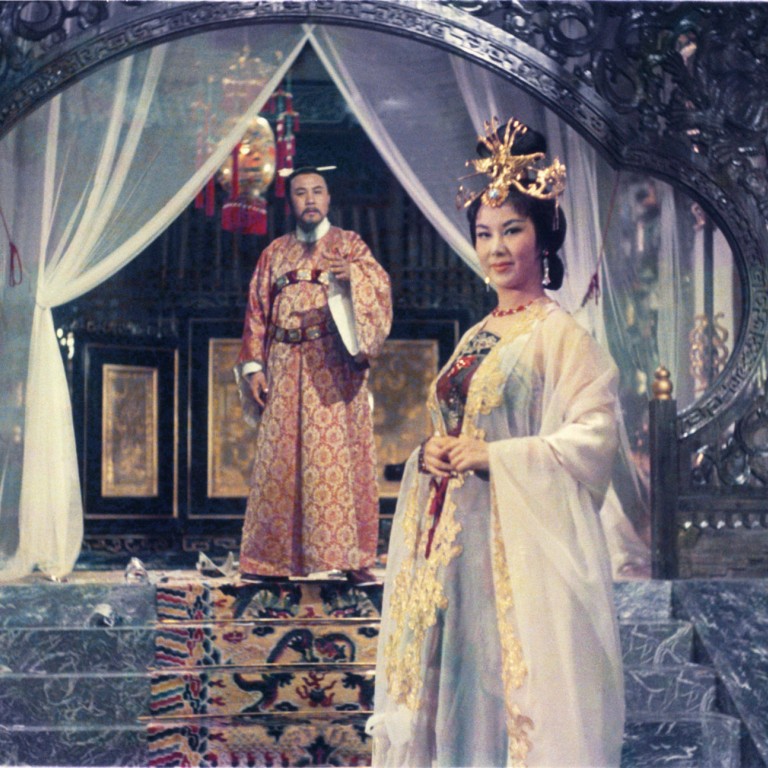
Art House: Yang Kwei Fei is a sumptuous tale about one of China's great beauties
Out of the "Four Great Beauties" of ancient China, Lady Yang, who received the exalted rank of ("noble consort") from Emperor Xuanzong of Tang, looks to have been the most honoured in film.
In 1955, the great Japanese filmmaker Kenji Mizoguchi directed , a groundbreaking co-production between Shaw Brothers and Japan's Daiei Films that went on to compete at the Venice Film Festival. Seven years later, Li Han-hsiang's remake made history by being the first Chinese-language film to win the Technical Grand Prize at the Cannes Film Festival.
A visually sumptuous work featuring elaborate indoor sets and impressive exteriors, (aka ) was filmed in the back lot of the large Movietown established just a year earlier by the Shaw Brothers at Clear Water Bay. More than once in this costume drama, cinematographer Ho Lan-shan's camera lovingly lingers on background details, shooting scenes with a deep focus that calls attention to the offering's art and production designs.
Adding to the high aesthetic quotient is screen queen Li Lihua, whose portrayal of the title character is imbued with the glamour and elegance that she was famous for. Memorably introduced in a scene dripping with luxury, the leading lady and her character dominate proceedings, leaving Lady Mei (Li Hsiang-chun), Lady Yang's main rival for the affections of the Emperor (Yan Jun), and even the imperial personage himself, in the shade.
Based, like Mizoguchi's film, on Tang dynasty poet Bai Juyi's , Li's 1962 effort depicts Lady Yang as a formidable personality who genuinely cared for the decades-older Emperor, and was greatly loved in return by him. But while both of them cared in the abstract for the country and its denizens, they were too engrossed in their romantic affairs and opulent lifestyles to devote much time to making things better for the rest of society.
With prime minister Yang Guozhong (Yang Chih-ching) being a corrupt official prone to abuse his office, sociopolitical unrest was inevitable. Rather than put the blame for the country's ills on the Emperor (who was considered wise and progressive earlier in his reign), detractors opted to target Lady Yang instead — reasoning that without her help, her clansman would not have been elevated to the powerful position.
Several of the works about Lady Yang have portrayed her as the conniving author of misfortune. Others are more sympathetic, taking the view that she was a tragic scapegoat. offers an intriguing characterisation of her as a relative innocent — albeit one who, along with the emperor, was out of touch with the common people.
